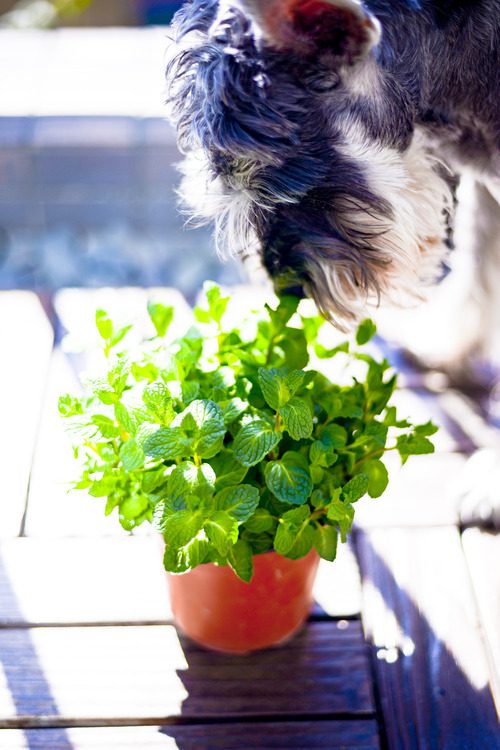Can a Dog Eat Peppermint?
Dogs often show curiosity towards various foods, and as pet owners, we naturally worry about what is safe for them to consume. One question is: can a dog eat peppermint? Understanding what is safe for your dog to eat is essential for their health and well-being. This article dives into the effects of peppermint on dogs, the potential benefits, and the risks associated with it.

What Is Peppermint?
Peppermint is a hybrid mint, a cross between watermint and spearmint, known for its strong, refreshing aroma and taste. It is commonly used in human foods, drinks, and as a natural remedy for various ailments. But is it safe for dogs to eat peppermint?
Is Peppermint Safe for Dogs?
When considering if a dog can eat peppermint, it is crucial to understand the difference between fresh peppermint and peppermint-flavored products. While small amounts of fresh peppermint are generally safe for dogs, peppermint-flavored products can contain harmful ingredients.
Fresh Peppermint
Fresh peppermint leaves, in moderation, can be safe for dogs. However, large quantities can cause gastrointestinal issues such as vomiting or diarrhea. If your dog eats a small amount of fresh peppermint, it is unlikely to cause harm, but always observe for any adverse reactions.
Peppermint-Flavored Products
Many peppermint-flavored products, like candies, gums, and certain human medications, contain xylitol, an artificial sweetener that is toxic to dogs. Even in small amounts, xylitol can cause severe health issues, including hypoglycemia, seizures, and liver failure. Therefore, dogs should never consume peppermint-flavored products designed for human consumption.
Potential Benefits of Peppermint for Dogs
While the primary concern is whether a dog can eat peppermint safely, some believe that peppermint can offer certain health benefits when used correctly.
Digestive Aid
Peppermint is known for its soothing properties on the digestive system. For dogs experiencing mild stomach upset, a small amount of peppermint can help alleviate symptoms like gas and bloating. However, it is essential to consult your veterinarian before giving your dog any new food or remedy.
Breath Freshener
Peppermint’s strong aroma can help freshen your dog’s breath. If you notice your dog’s breath is less than pleasant, adding a small amount of fresh peppermint to their diet occasionally can be a natural way to improve it. Always ensure the peppermint is free of any harmful additives.
Risks and Side Effects of Peppermint for Dogs
Even though peppermint can have benefits, it also carries risks, especially when not used properly.
Gastrointestinal Issues
While small amounts of peppermint may soothe a dog’s stomach, too much can lead to gastrointestinal upset. Symptoms like vomiting, diarrhea, and abdominal pain can occur if a dog eats a large amount of peppermint.
Allergic Reactions
Just like humans, dogs can have allergies to various foods, including peppermint. If your dog shows signs of an allergic reaction, such as itching, swelling, or difficulty breathing, seek veterinary care immediately.
What to Do If Your Dog Eats Peppermint
If you suspect your dog has eaten peppermint, observe them closely for any signs of distress or unusual behavior. If your dog consumes a large quantity or peppermint-flavored products containing xylitol, contact your veterinarian immediately.
When to Call the Vet
Contact Keystone Animal Hospital right away at (941) 741-8445 if you notice any of the following symptoms after your dog eats peppermint:
- Vomiting or diarrhea
- Lethargy or weakness
- Seizures
- Difficulty breathing
- Excessive drooling
Keeping Your Dog Safe with Peppermint
So, can a dog eat peppermint? The answer is yes, but with caution. While small amounts of fresh peppermint can be safe and even beneficial, peppermint-flavored products should be avoided due to the risk of xylitol poisoning and other harmful additives. Always consult your veterinarian before introducing any new food into your dog’s diet. For more information on safe foods for your dog or if you have concerns about something your dog has eaten, call us today at Keystone Animal Hospital at (941) 741-8445.
